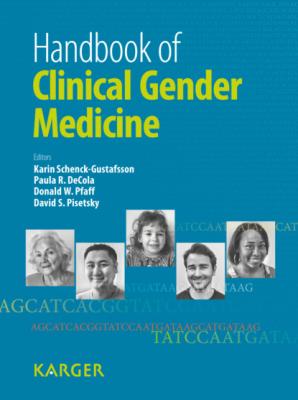ТОП просматриваемых книг сайта:
Handbook of Clinical Gender Medicine. Группа авторов
Читать онлайн.Название Handbook of Clinical Gender Medicine
Год выпуска 0
isbn 9783805599306
Автор произведения Группа авторов
Издательство Ingram
Table 2. Countries with population over 1 million reporting SRBs over 107 in a recent year (and near-complete vital registration)
| Country (year) | Sex ratio | Midyear population (2010), UNPD |
| Albania (2004) | 113 | 3,204,000 |
| El Salvador (2007) | 110 | 6,193,000 |
| Philippines (2007) | 109 | 93,261,000 |
| Libya (2002) | 108 | 6,355,000 |
| Serbia (2008) | 108 | 9,856,000 |
| Austria (2008) | 107 | 8,394,000 |
| Cuba (2008) | 107 | 11,258,000 |
| Italy (2005) | 107 | 60,551,000 |
| Kyrgyzstan (2008) | 107 | 5,334,000 |
| Portugal (2008) | 107 | 10,676,000 |
| Spain (2008) | 107 | 46,077,000 |
| All data are derived from civil registration, estimated at over 90% complete. Source [adapted from table 10 in 47]. | ||
Table 3. Countries with populations over 1 million reporting child (age 0-4 years) sex ratios above 107 in a recent population census
Biologically impossible SRBs are also now seen in the USA and the UK - within particular ethnic groups. In America, SRBs of 108 were characteristic of the ‘Asian-Pacific’ populations such as Chinese-Americans, Korean-Americans, and Filipino-Americans in the 2000 census [34] and in vital statistics thereafter - populations whose SRBs were within the ‘natural’ biological range a generation ago. In England and Wales, SRBs for Indian-born mothers have also risen markedly, from 104 in the 1980s to 108 in the late 1990s [35]. In both the USA and the UK, these gender disparities were due largely to sharp increases in higher-parity SRBs, strongly suggesting that sex-selective abortions were the driver. The US and UK cases also point to the possibility that sex-selective abortion may be common to other subpopulations in developed or less developed societies, even if these do not affect overall SRBs for the country as a whole.
The Demographic Effect
Sex-selective abortion is by now so widespread and so frequent that it has come to distort the population composition of the entire human species: this new and medicalized war against baby girls is indeed truly global in scale and scope. Estimates by the United Nations Population Division (UNPD) and the US Census Bureau’s International Programs Center (IPC) - the two major organizations charged with tracking and projecting global population trends - make the point (tables 4, 5). By the analysis of the IPC, as of 2010 a total of 21 countries or territories (including a number of European, Middle Eastern, and Pacific Island areas not yet mentioned in this chapter) had child (0-4 years of age) sex ratios of 107 or higher in the year 2010. The total population of the regions said to be beset by unnaturally high SRBs amounted to 2.72 billion, or about 40% of the world’s total population. For its part, the UNPD estimates that 24 countries and territories (a slightly different roster from that of the IPC, including some additional European, South American, Middle Eastern, Asian and Pacific settings not thus far mentioned) had SRBs of 107 or higher for the 2005-2010 period. The total population for these regions in 2010 was estimated at 2.74 billion, or about 39% of the world’s 6.8 billion population that same year. The estimated 2010 population for all of the places flagged by either the UNPD or the IPC for unnaturally high SRBs or child sex ratios would amount to 2.82 billion - about 41% of the total global population - and if we tally in the other places from tables 2 and 3 whose official demographic statistics report unnaturally high SRBs of child sex ratios, we would have a total of over 50 countries and territories accounting for over 3.2 billion people, or roughly 46% of the world’s total population.
By the reckoning of the UNPD, the overall global SRB has already reached biologically impossible heights in the era of sex-selective abortion, rising from 105 in 1975-1980 to 107 for 2005-2010. By the same token, the IPC puts the worldwide under-5 child sex ratio at 107.0 for 2010 (though its global estimates only extend back to the year 2000).
Table 4. UNPD estimates of countries with SRBs above 107 in 2010 and an implied ‘excess male’ population under 20 years of age
To go by both UNPD and IPC reconstructions of local age-sex structures, today’s unnaturally high SRB and/or child sex ratio societies would have had an aggregate ‘boy surplus’ of over 55 million boys and young men under the age of 20 by the year 2010. If we assume that the SRBs and child/youth sex ratios in these societies should be around 105, the unnatural ‘girl deficit’ for females 0-19 years of age as of 2010 would have totaled roughly 34-35 million by both UNDP and IPC figures (tables 4, 5). In both the UNPD and the IPC reckonings, the world’s two most populous countries, China and India, would account for the overwhelming majority (33-34 million) of the

